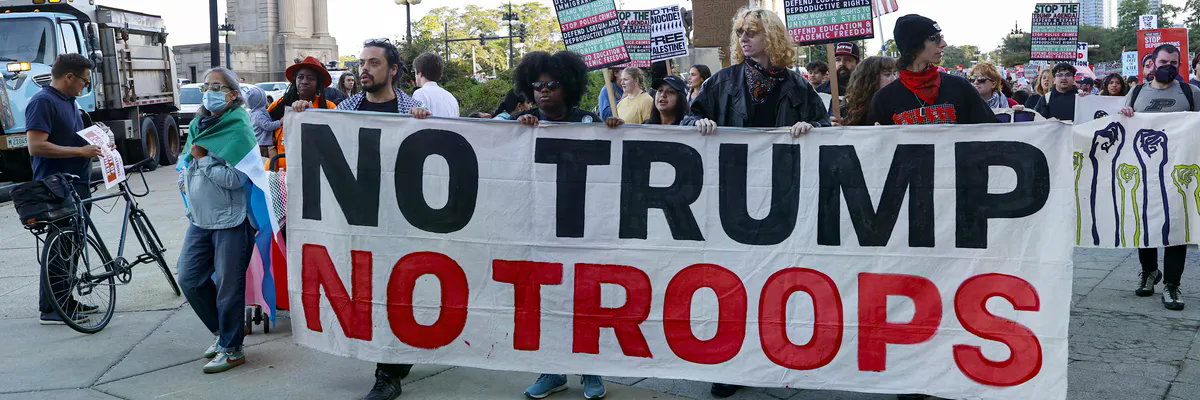
A federal judge issued her full opinion on Friday night, explaining the reasoning behind an earlier decision to block President Donald Trump from deploying Texas National Guard troops in Chicago. The ruling included sharp criticism of the administration’s understanding of current events.
In her decision, Judge April Perry began by referencing a lengthy excerpt from the Federalist Papers, specifically addressing Alexander Hamilton’s concerns about a tyrannical president using a militia from one state to invade and occupy another. Hamilton dismissed such fears, arguing that it was unreasonable to believe a leader would resort to such extreme measures to achieve their goals.
Judge Perry noted that this very scenario is what Illinois and Chicago allege is currently unfolding. They claim that National Guard units from both Illinois and Texas have been sent to Illinois as a form of punishment against state officials whose policies differ from those of the federal government.
The judge then evaluated the legal conditions under which the president may federalize the National Guard. She concluded that the administration’s justification for sending troops to Chicago did not meet any of these criteria.
Perry outlined that federalization is permissible only when there is a rebellion or a threat of rebellion against the U.S. government. However, she emphasized that historically, the threshold for such deployment has been high and not met by current circumstances.
She explained that during the late 1800s and early 1900s, “rebellion” referred to organized, armed resistance against government authority. For example, the Civil War was recognized as a rebellion by the Supreme Court and statutes of the time.
Perry pointed out that the administration has not claimed any similar level of unrest in the country today. In her opinion, the documents authorizing the deployment of the National Guard to Illinois do not include any factual determination that a rebellion is occurring in the state.
The ruling also addressed the administration’s argument that local law enforcement in Broadview, Illinois, was unable to manage protests at the Immigration and Customs Enforcement (ICE) facility. While there have been instances where police intervened to prevent protesters from approaching the site, Perry stated that no level of disorder justified the use of the National Guard.
She noted that the ICE Processing Center has remained open and operational throughout the protests, and that no evidence was presented showing that protesters obstructed the movement of ICE vehicles.
This prompted Perry to highlight what she called a troubling trend: the administration’s tendency to equate peaceful protests with riots, and its failure to recognize the difference between citizens who are observing, questioning, and criticizing the government and those engaging in violence or obstruction.
The judge concluded that this approach reflects bias and a lack of objectivity, ultimately determining that the administration’s perceptions are not reliable.


